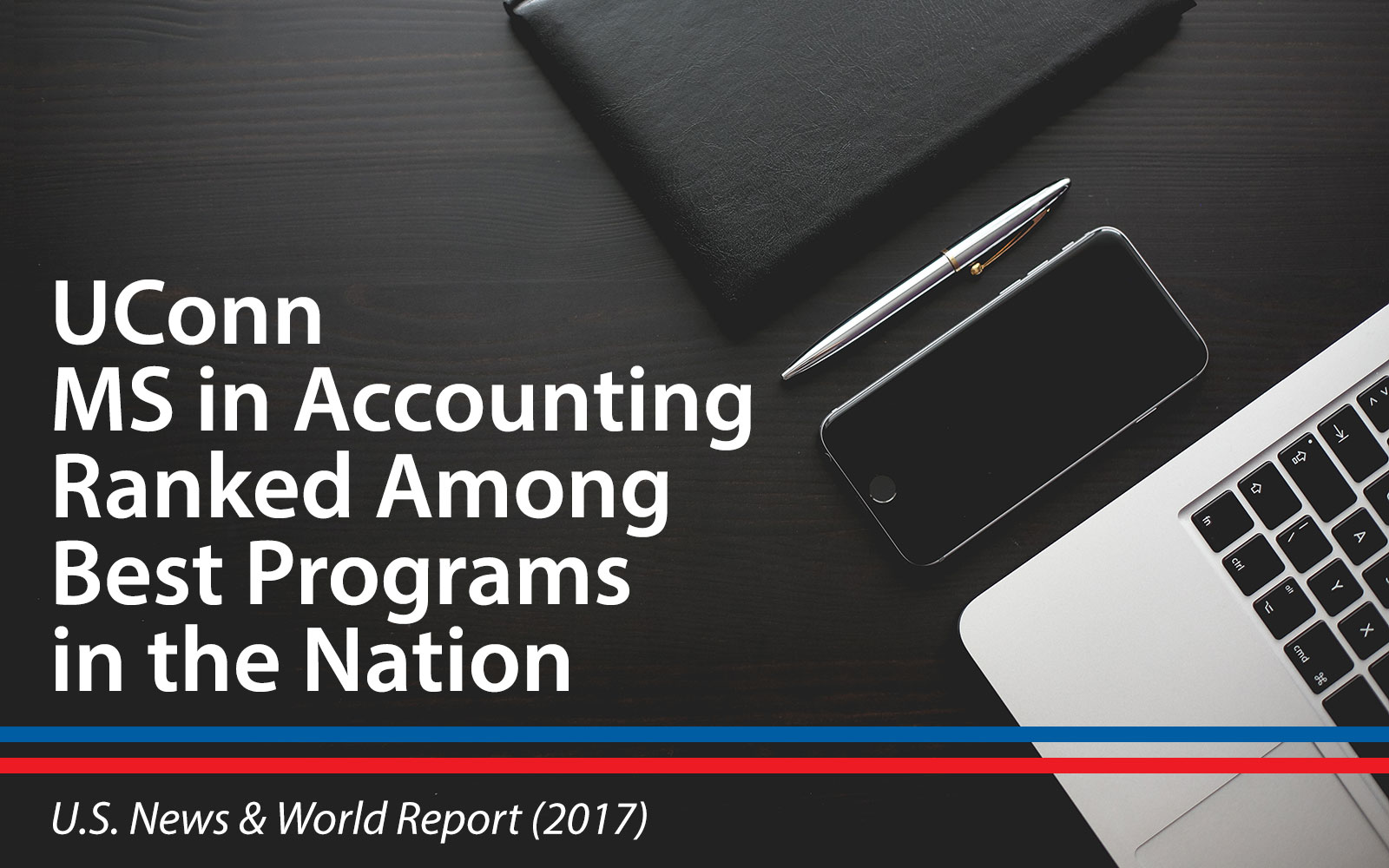
For Third Consecutive Year, U.S. News Picks UConn MSA as Among Best Programs in Nation
U.S. News and World Report has ranked the School of Business’ online Master of Science in Accounting program (MSA) among the best in the nation, for the third consecutive year. Continue Reading




